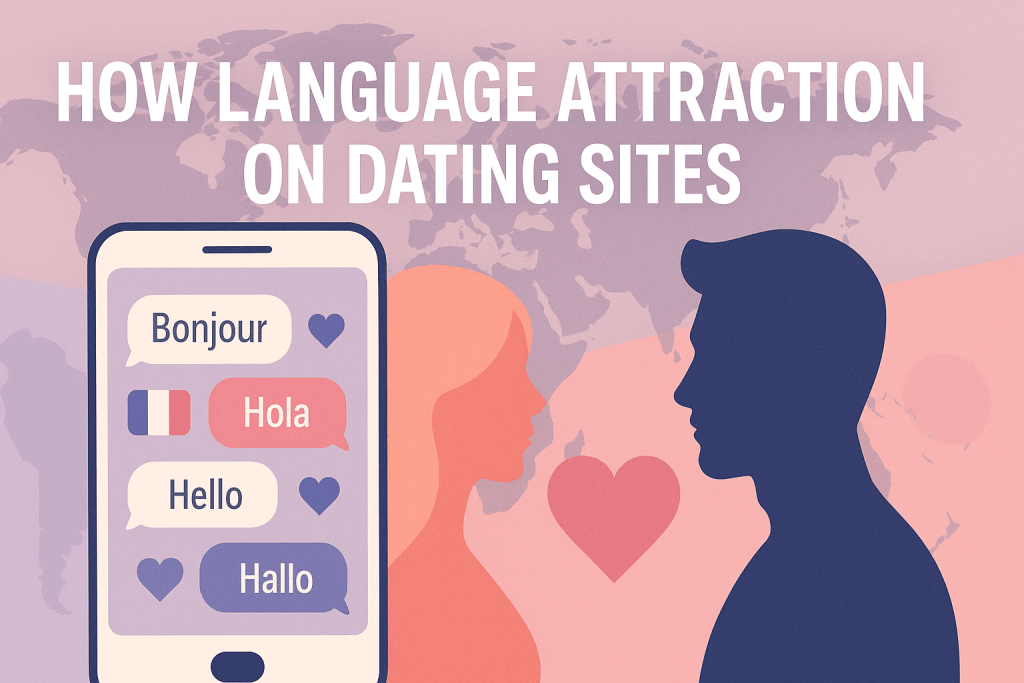Online dating throws a curveball at first impressions. Gone are the immediate cues of a smile, a laugh, or the way someone carries themselves. Instead, your initial handshake is a string of text messages. What you type and how you do it becomes the primary building block for sparking interest. The words chosen in those first few chats carry surprising weight, influencing whether someone swipes left in their mind or leans in wanting more. Let’s break down how the language used shapes attraction, looking at tone, grammar, humor, and word choice. Understanding these elements helps craft messages that better reflect personality and intentions.

Tone: Setting the Right Vibe
Think of tone as the personality coloring your written words. Without hearing a voice, readers assume mood and attitude from phrasing, punctuation, and word selection. Your textual tone sets the stage. Positive tones typically involve asking thoughtful, open-ended questions, demonstrating real curiosity about the other person, and using polite language. An exclamation mark here or there can signal enthusiasm, but overdoing it looks juvenile.
Conversely, a negative tone is a fast track to disinterest. Blunt, one-word answers, constant complaining, or sarcasm that doesn’t land well can make someone seem cold, arrogant, or simply unpleasant. Ambiguity is also risky; if someone can’t tell if you’re being serious or joking, they might just disengage. Communication styles that work for finding a long-term partner may differ from those on a local hookup site, but baseline respect and clarity are usually appreciated everywhere.
Grammar and Clarity: More Than Just Typos
While nobody expects literary perfection in a dating app chat, consistently messy writing sends unintended signals. Frequent typos, poor spelling, and sentences that ramble on without punctuation suggest a lack of care or attention to detail. Fair or not, some people associate sloppy writing with a lack of intelligence or effort. More practically, bad grammar makes messages hard to understand. If someone has to decipher your text, the flow of conversation stalls, and frustration builds.
This isn’t about being a grammar snob. Occasional mistakes happen to everyone. The issue arises with persistent carelessness. Basic errors like mixing up “your” and “you’re,” “their,” “there,” and “they’re,” or forgetting capitalization and periods create friction. Making a reasonable effort to write clearly shows you value the conversation and the person you’re talking to. Even showing awareness in small things, such as knowing the correct 5 ways to say “Good Evening” displays attention that can be appealing. The point isn’t perfection, but clarity and demonstrating you care enough to be understood.
Humor: Connecting Through Laughter (Carefully)
Humor is a powerful tool in human bonding. A shared laugh can break the ice, reveal personality, and make a chat much more memorable. Witty observations, light self-deprecation, or playful banter can definitely increase appeal and suggest a good match in personality. When humor lands well, it creates a shortcut to rapport.
However, humor via text is a minefield. It’s incredibly subjective. Sarcasm, often dependent on vocal tone and facial expression, frequently falls flat or sounds mean in writing. Jokes that rely on specific cultural knowledge might not translate. Aggressive teasing or controversial topics are usually bad ideas early on. Start subtle. If a joke bombs, just move on smoothly. Authenticity matters here too; forcing humor rarely works. Furthermore, if your wit is riddled with mistakes, the thought gets lost, and research indicates that spelling errors affect attraction, potentially making this attempt counterproductive.
Vocabulary: Choosing Words that Resonate
The actual words you select paint a picture of who you are. Your vocabulary offers clues about your interests, background, and overall personality. Are your messages filled with generic chat-speak, or do you use more descriptive language? Finding the right balance is important. Overly simplistic language makes you seem uninterested or lacking depth. On the other flip side, constantly using obscure or overly formal words can come across as pretentious or like you’re trying too hard.
Aim for clarity and expressiveness that feels natural. Instead of saying your day was “good,” perhaps it was “relaxing,” “productive,” or “eventful”? Such details invite follow-up questions. Slang and emojis have their place; used sparingly, they add personality. But overuse can seem immature or confusing, especially if the other person doesn’t share the same habits. Think about the impression your word choices create. Are they reflective of the thoughtful, interesting person you are? Choose words that communicate your meaning clearly and add a touch of your unique flavor to the conversation.
Tying It All Together
In the text-based arena of early online dating chats, your words do the heavy lifting. Tone sets the emotional temperature, grammar ensures clarity and shows care, humor (used cautiously) builds rapport, and vocabulary paints a picture of your personality. These aren’t separate, rigid rules but interconnected facets of communication. By being mindful of these elements, you give potential matches a clearer, more attractive glimpse of the person behind the screen, improving your chances of moving from text messages to something more substantial.

